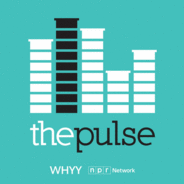Dealing with a serious or chronic health condition is hard enough — but what happens when that condition comes with moral judgment? That's the case for millions of people around the world. From obesity to lung cancer, sexually transmitted diseases to mental illness, stigmatized conditions are shrouded in shame and blame that can not only hinder treatment — but ruin lives.On this episode, we explore stigmatized health conditions — how they earn their reputations, affect the lives of patients, and complicate efforts to treat them. We hear about the flawed effort to track down the origin of the HIV epidemic in the U.S. that inadvertently introduced a new term into our language. We explore what researchers say is behind the "blame and shame" game in public health, and we find out why a man diagnosed with antisocial personality disorder says his condition isn't always as scary as people think.Learn more about sponsor message choices: podcastchoices.com/adchoicesNPR Privacy Policy

Wissenschaft & Technik
The Pulse Folgen
Go on an adventure into unexpected corners of the health and science world each week with award-winning host Maiken Scott. The Pulse takes you behind the doors of operating rooms, into the lab with some of the world's foremost scientists, and back in time to explore life-changing innovations. The Pulse delivers stories in ways that matter to you, and answers questions you never knew you had.
Folgen von The Pulse
105 Folgen
-
Folge vom 13.10.2023Shame and Blame: How Stigma Impacts Health
-
Folge vom 06.10.2023How Science is Transforming Weight LossMost of us have been there — feeling our jeans get tighter, watching the numbers on the scale creep up, declaring that this time we're going to lose the weight and keep it off.For a lot of people, though, it seems like no matter what they do — how many diets they try, calories they count, or hours they spend at the gym — losing weight isn't just hard; it feels downright impossible. Two in five American adults are obese, and the numbers keep rising. It's been called a public health crisis, especially since obesity can lead to a number of other health issues, like heart disease and diabetes.But scientists are learning more about how fat cells function — and how they affect the rest of the body. And new injectable weight loss drugs are giving many people renewed hope.On this episode, we explore this new science, and how these solutions are — or aren't — working on the ground. A researcher explains what happens on a cellular level when we gain weight, a pediatrician hunts for solutions to help her young patients, and we'll learn about the practical challenges surrounding drugs like Ozempic.Learn more about sponsor message choices: podcastchoices.com/adchoicesNPR Privacy Policy
-
Folge vom 29.09.2023Space PioneersIn 1978, NASA recruited six candidates out of thousands of applicants for a special, groundbreaking mission: to become the first American women in space. Over the next few years, the six women would endure sexism, grueling training, and unending scrutiny from the media. In her new book, "The Six: The Untold Story of America's First Women Astronauts," author Loren Grush explores the stories of these female pioneers, along with the longer history of women's fight for inclusion in the male-dominated world of NASA.On this episode, we talk with Grush about how America's first female astronauts came to be, their journeys and challenges, and what kept them committed to their mission. Later, we hear from another space pioneer — a Navajo NASA engineer who says his childhood in Arizona prepared him for his work studying Mars.Learn more about sponsor message choices: podcastchoices.com/adchoicesNPR Privacy Policy
-
Folge vom 22.09.2023Boredom in the Age of Information OverloadIt sneaks up on us while we're sitting in traffic, or waiting at the doctor's office, or doing our taxes — boredom, that restless feeling of dissatisfaction that arises when we harbor "the desire for desires," as Leo Tolstoy said.At the same time, we're living in an age of never-ending stimulation, all at our fingertips — texting, social media, 24-hour news, and streaming galore. But despite this constant content consumption, we're still getting bored — maybe even more so than ever. We find ourselves hopping from tab to tab, scrolling through Instagram while watching a show, tuning out of meetings to check our email. And now some researchers are worried that all this stimulation could be changing our brains.On this episode, we look at boredom in the age of information overload, and whether or not it's really good for us and our brains. We hear stories about what happened when two reporters quit their digital addictions for four weeks, a monk who took his search for boredom to the ultimate extreme, and why there's value to the slow pace of baseball.Learn more about sponsor message choices: podcastchoices.com/adchoicesNPR Privacy Policy
